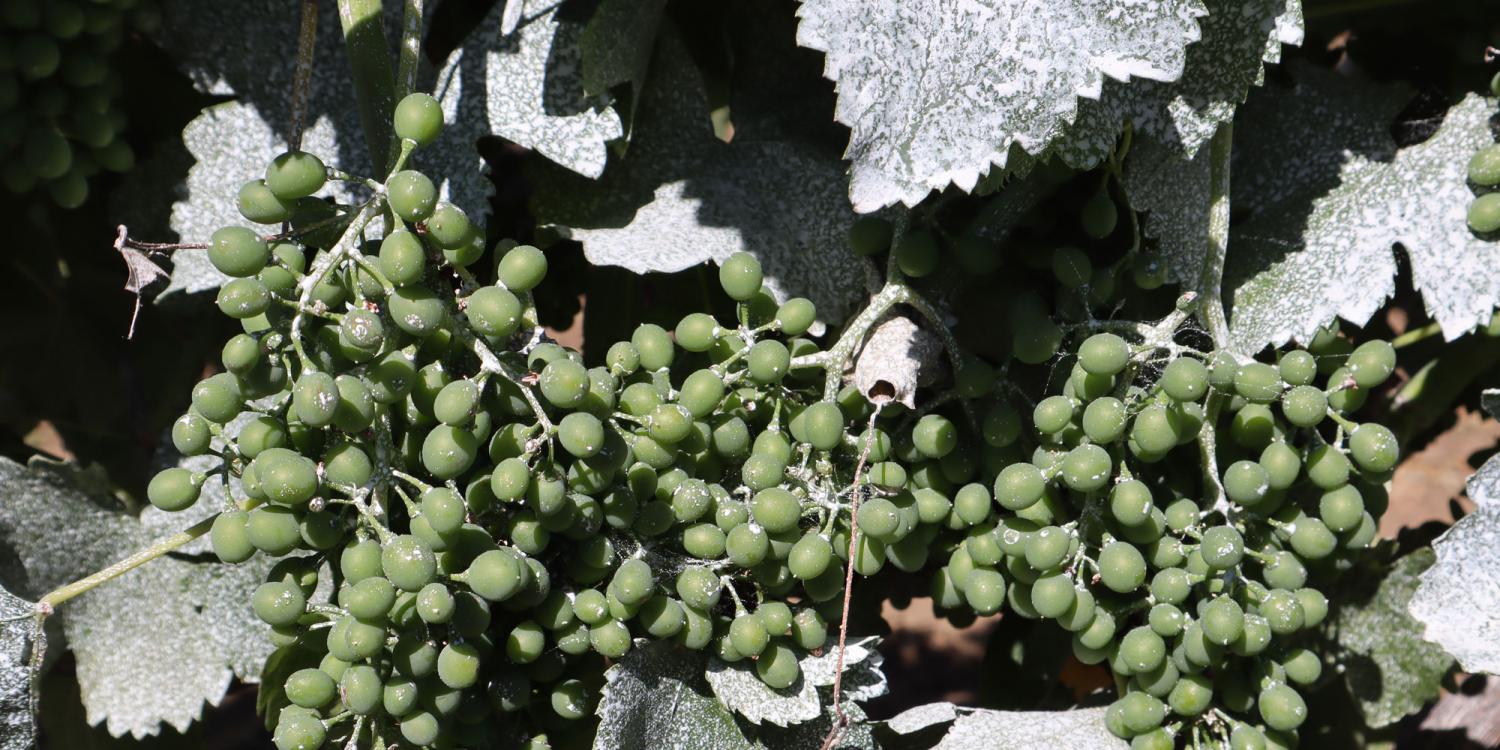
The wine region of the Walla Walla Valley labors under the most extreme conditions for grapes in the state. Growers have adapted, but recently the shifting climate has created more unpredictable and extreme conditions as illustrated by the 2021 heat spike, when record-shattering temperatures were above 110 degrees.
The Oregon State University Extension Service responded with a pilot study to evaluate the effectiveness of kaolin clay, which is used in orchards to reduce heat stress and sunburn. Studies of kaolin clay in the Pacific Northwest, which are mixed and at least 10 years old, needed to be re-evaluated. Cody Copp, an Extension horticulturist and assistant professor of practice in the OSU College of Agricultural Sciences, took on the research.
The study was preceded by the publication of the article “Managing grapevines during a heat spike,” written by Copp and Alexander Levin, viticulturist and director of the Southern Oregon Research and Extension Center. The article appeared in the Oregon Wine Research Institute’s far-reaching Vine to Wine newsletter and on the OSU Extension website, where it was the sixth most-viewed article on the site in 2022.
For the study, a grower and winemaker near Milton-Freewater agreed to host the kaolin project with OSU Extension in a commercial block of syrah, a regionally important cultivar. Kaolin was applied several times during the season to maintain canopy coverage. Vine stress, yield and fruit quality responses to kaolin were measured.
Most notably, the research found kaolin produced greater yields and fruit quality compared to the control plot, where kaolin wasn’t applied. Evidence also showed that kaolin reduced the impact of heat and light on vine leaf function. The grower produced wine from the study’s vineyard plot, which will be evaluated for future outreach to other wine grape growers in the Walla Walla Valley.
The project has been funded by the Agricultural Research Foundation for two more years to continue studying the effects of kaolin and fine-tune the application rate.